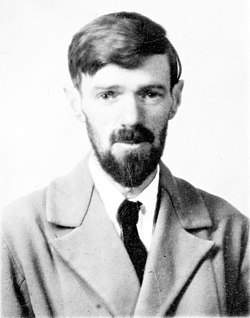D.H. Lawrence Quote
From the old wood came an ancient melancholy, somehow soothing to her, better than the harsh insentience of the outer world. She liked the inwardness of the remnant of forest, the unspeaking reticence of the old trees. They seemed a very power of silence, and yet a vital presence. They, too, were waiting: obstinately, stoically waiting, and giving off a potency of silence.
D.H. Lawrence
From the old wood came an ancient melancholy, somehow soothing to her, better than the harsh insentience of the outer world. She liked the inwardness of the remnant of forest, the unspeaking reticence of the old trees. They seemed a very power of silence, and yet a vital presence. They, too, were waiting: obstinately, stoically waiting, and giving off a potency of silence.
Tags:
silence
Related Quotes
Let my silence grow with noise as pregnant mothers grow with life. Let my silence permeate these walls as sunlight permeates a home. Let the silence rise from unwatered graves and craters left by bomb...
Kamand Kojouri
Tags:
abuse, abused, activism, activism poems, activist, amnesty, bellies, bombs, broken hearts, coming together
They took one look at me,And hated my black face.They took one look at me,And decided on my fate.They took one look at me,And forced an unknown fear.They took one look at me,And caused the shed of tea...
N'Zuri Za Austin
Tags:
acknowledge, all lives matter, black lives matter, bleed, bleeding, blood, conflict, erase, faith, harmony
God whispered, "You endured a lot. For that I am truly sorry, but grateful. I needed you to struggle to help so many. Through that process you would grow into who you have now become. Didn't you know...
Shannon L. Alder
Tags:
abuse, accepting, answers, autoimmune disease, bullied, compassion, crying, cyberbullying, defamation, empathy
About D.H. Lawrence
David Herbert Lawrence (11 September 1885 – 2 March 1930) was an English novelist, short story writer, poet, playwright, literary critic, travel writer, essayist, and painter. His modernist works reflect on modernity, social alienation and industrialization, while championing sexuality, vitality and instinct. Four of his most famous novels – Sons and Lovers
(1913), The Rainbow (1915), Women in Love (1920), and Lady Chatterley's Lover (1928) – were the subject of censorship trials for their radical portrayals of romance, sexuality and use of explicit language.
Lawrence's opinions and artistic preferences earned him a controversial reputation; he endured contemporary persecution and public misrepresentation of his creative work throughout his life, much of which he spent in a voluntary exile that he described as a "savage enough pilgrimage". At the time of his death, he had been variously scorned as tasteless, avant-garde, and a pornographer who had only garnered success for erotica; however, English novelist and critic E. M. Forster, in an obituary notice, challenged this widely held view, describing him as "the greatest imaginative novelist of our generation". Later, English literary critic F. R. Leavis also championed both his artistic integrity and his moral seriousness.
(1913), The Rainbow (1915), Women in Love (1920), and Lady Chatterley's Lover (1928) – were the subject of censorship trials for their radical portrayals of romance, sexuality and use of explicit language.
Lawrence's opinions and artistic preferences earned him a controversial reputation; he endured contemporary persecution and public misrepresentation of his creative work throughout his life, much of which he spent in a voluntary exile that he described as a "savage enough pilgrimage". At the time of his death, he had been variously scorned as tasteless, avant-garde, and a pornographer who had only garnered success for erotica; however, English novelist and critic E. M. Forster, in an obituary notice, challenged this widely held view, describing him as "the greatest imaginative novelist of our generation". Later, English literary critic F. R. Leavis also championed both his artistic integrity and his moral seriousness.
